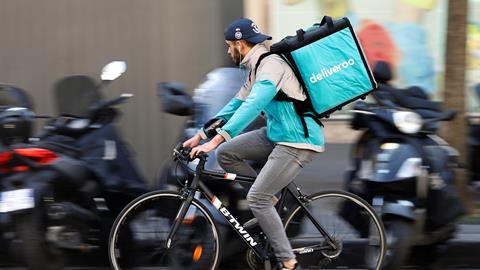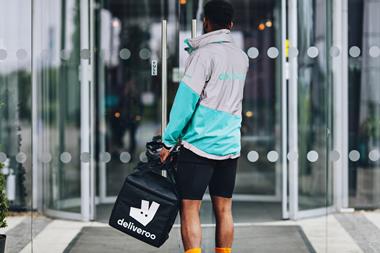Labour is to legislate “a new deal for working people” – which it promises to introduce in parliament by mid-September – to “ban exploitative practices and enhance employment rights”
Plans for a ban on “exploitative zero-hours contracts” and putting an end to “the scourges of fire and rehire” are clearly spelt out in its manifesto. But what does the party’s – now government’s – relative silence on the gig economy mean?
There is suspicion the new government will purposely avoid gig economy worker rights. It’s well founded. The party had been planning to create a single “worker” status which would include aggregator app couriers, but last year reportedly watered the policy down to avoid accusations of being anti-business.
“It did not make it into the party’s manifesto,” says Ben Wray, co-ordinator of The Gig Economy Project. It is not much of a new deal “if that doesn’t include workers in the gig economy”, he adds.
In the view of James Farrar, founder and director of Worker Info Exchange, it indicates “gig employment reforms are set to be kicked down the road”.
Farrar is also concerned about Labour’s language around flexible work – something it says benefits the “poorest in society” and helps bring people into work.
“This fallacy is straight from the playbook of Uber, Bolt, Just Eat and Deliveroo. It is indicative of the Faustian pact that employer-granted flexibility must require the sacrifice of rights by workers,” he says.

Not all agree. Alfie Pearce-Higgins, co-founder of Rodeo – a platform that enables riders to track earnings across apps – says: “There will be some in the Labour Party whose natural instincts will be to reclassify gig workers as employees, as looks to be happening across Europe with the Platform Work Directive.
“We believe that this would be a mistake, as it would deprive workers of the flexibility and independence many want and which poses an existential risk to business models like Deliveroo, Uber and Just Eat.
“However, it is clear the current gig economy is unsustainable,” he adds. The government must introduce a gig worker minimum wage which accounts for waiting time and vehicle costs, Pearce-Higgins says, and to “force platforms to explain and publish their pay rates”.
“One of the reasons there are so many issues around gig worker pay is that there is so little transparency. All of the platforms use dynamic, opaque algorithms to set fees.”
Farrar agrees that “algorithmic management of gig work is becoming more aggressive” with the “squeezing of workers becoming more desperate”.
Read more:
-
Ocado CEO takes aim at ‘ludicrous’ growth predictions of rapid delivery players
-
Deliveroo continues non-food play with The Perfume Shop partnership
-
On-demand grocery hits 80 million orders worth £2bn
-
Uber Eats riders come out against picking and packing grocery orders
Intensive lobbying
Unions and employee groups are worried about a “regulatory capture” of Labour by the aggregator apps.
“We know Deliveroo and other gig economy platforms have been intensively lobbying the party,” says Wray.
Representatives of Uber and Deliveroo have been invited to Labour Party conferences and dinners, something the App Drivers & Couriers Union considers “completely inappropriate and tone-deaf”.
And just as those platforms recruited Conservative insiders when the Tory government was in power, both have since welcomed Labour Party players into senior policy and communications roles.
For now, says Wray, “we don’t yet know what the new deal will mean for the gig economy – if anything”. But it is hoped the most precarious of workers in society are not overlooked.
Farrar says: “These are the people the Labour Party should champion first, not last.”

























No comments yet